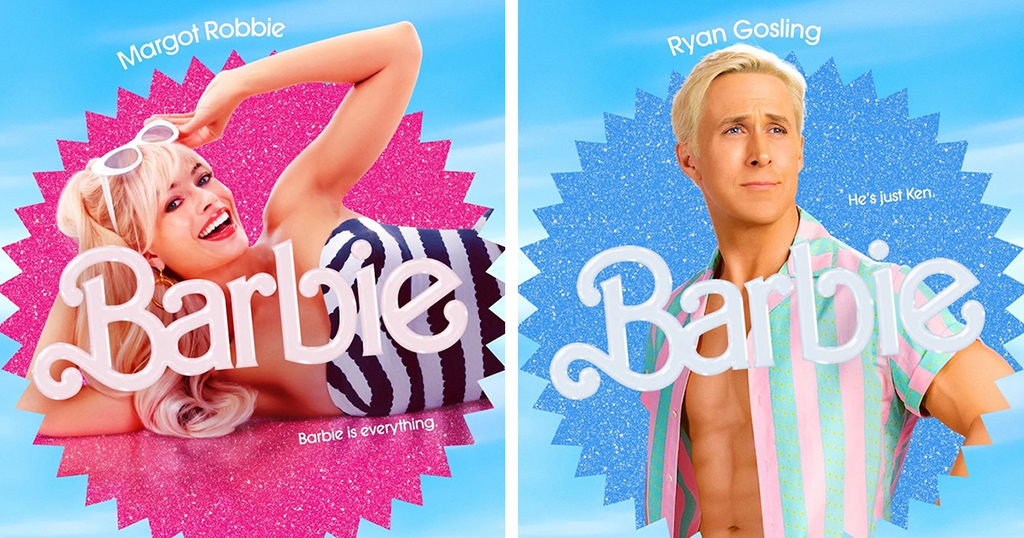By Bob Garver
“Barbie” prides itself on inspiring a full range of feelings – both in its characters and its audience. The characters tap into dark, sad sides they never knew they had, and they find out life is more rewarding for it. The audience is sure to eat up all the easy jokes and sweetness, sure, but they’re also supposed to appreciate the film for its psychological depth and hard-hitting social commentary. Perhaps it’s appropriate that I have a broad range of feelings toward the film. I think there are portions that work very well, and there are entire storylines and characters that could be cut. There are jokes worth laughs, and jokes worth a cold stare. Some of the film’s insights opened my eyes, others made me roll them. But at least the movie is ambitious enough to attempt so many jokes and insights.
Barbie (Margot Robbie) lives in Barbieland with every other Barbie ever created. Most have careers, like President Barbie (Issa Rae) and Doctor Barbie (Hari Nef) and more, but Robbie is Stereotypical Barbie, whose life has no purpose except to be perfect. Equally bland is Ken (Ryan Gosling), whose only traits are that he enjoys the beach and pines after Barbie. He and the other Kens (Simu Liu, John Cena, and more) and one guy named Allan (Michael Cera) are happy to let the Barbies run things while they live like second-class citizens. In fact, everyone in Barbieland is happy all the time, until one day when Barbie is suddenly unhappy.
She goes to see the wizened Weird Barbie (Kate McKinnon), who sends her on a quest to the real world to find the source of her nagging thoughts of death and cellulite. Ken comes along, and both are shocked by what they find. Barbie discovers that she’s not the feminist icon she thought she was, as despite the disparate models and careers, the entire toy line is still considered pretty vapid. Ken learns that most of the world is run by a patriarchy, and that seems to be working out pretty well. Barbie visits Mattel headquarters, where the CEO (Will Ferrell) wants her to return to the status quo, but she’s not sure that’s what she wants anymore. She escapes with the low-level employee that’s been affecting her mind (America Ferrera, who gets an amazing monologue late in the movie) and her cynical daughter (Ariana Greenblatt). Together they all return to Barbieland, where they have to stop the newly-power-hungry Kens and… learn to get more out of life, I guess.
Admittedly, I’m not doing the story much justice, but in fairness, neither does the movie itself. Writer/director Greta Gerwig knows that she wants a number of story beats and ideas explored. But they aren’t tied together smoothly. For example, to what degree are the characters supposed to be literal dolls? Sometimes they move like normal humans, other times they’re affected by a lack of joints (and a lack of other body parts too, don’t think the movie isn’t going to address “that”). Why has it taken decades for certain concepts to reach Barbieland, and why now? What effects do Mattel and Barbieland have on each other, exactly? The movie dismisses these qualms in the laziest way possible, with a joke that follows the structure of “Is it A or is it B?” “Yes!” Frankly, I think the entire Mattel portion of the film could have been cut and Gerwig should have come up with another way for Barbie to have an important conversation with creator Ruth Handler (Rhea Perlman).
For all its flaws in world-building, “Barbie” is still an incredibly fun movie. The hot-pink-heavy color scheme is as gorgeous to people who like it as it is nauseating to people who don’t (but I do). The jokes usually work, especially when they’re not deliberately stupid or smutty. Most notably, Robbie, Gosling, and the entire team are clearly having a blast. And you will too, especially if you can catch this movie soon while the theatrical experience is still a big party.
Grade: B-
“Barbie” is rated PG-13 for suggestive references and brief language. Its running time is 114 minutes.
Contact Bob Garver at rrg251@nyu.edu.




